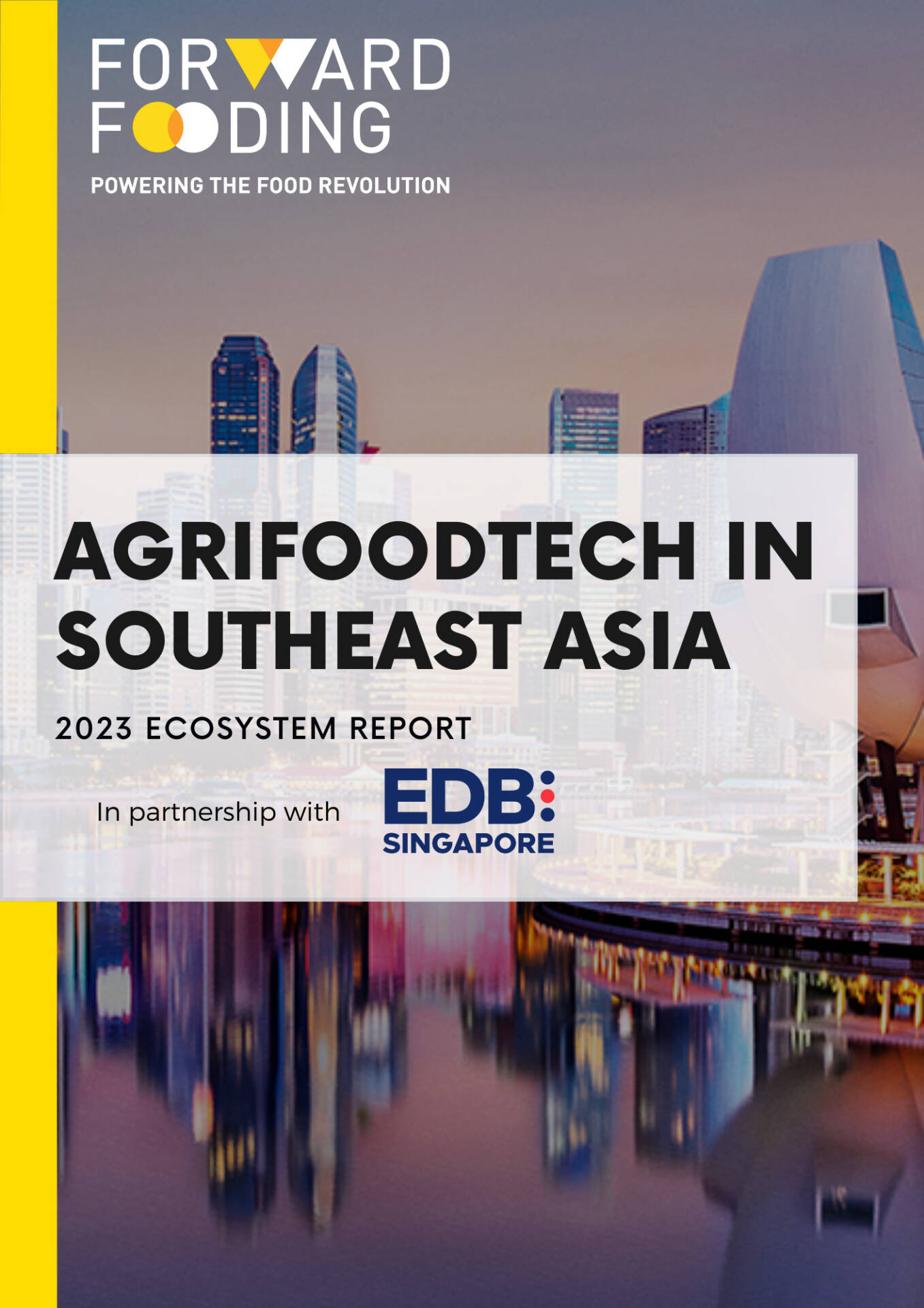FORWARD FOODING
THE BLOG
FoodTech 500 Spotlight: The South American AgriFoodTech Landscape
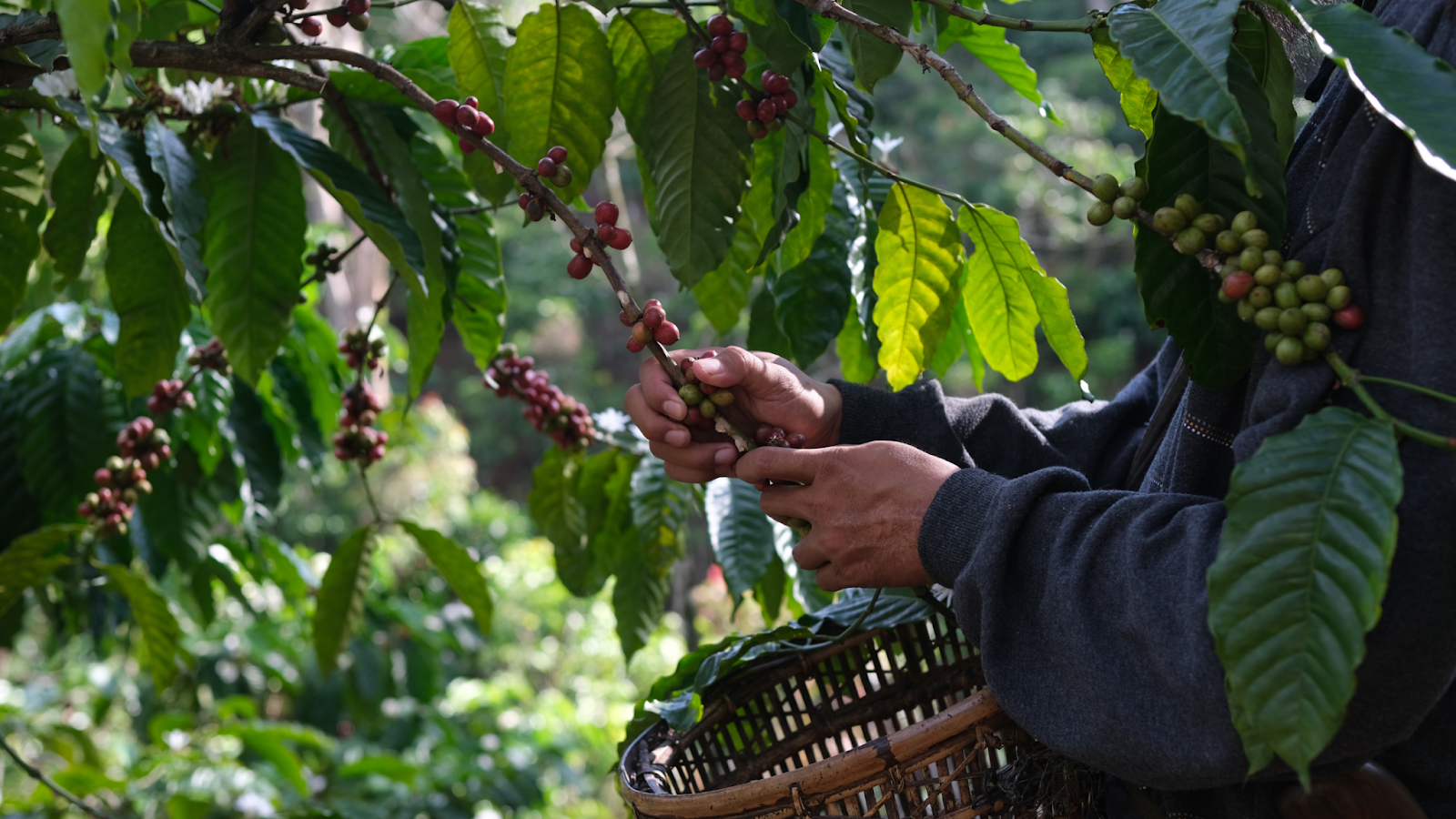
Image: Astri Nugraheni
AgriFoodTech startups from South America are carving out a distinctive position in the global food innovation landscape, as evidenced by their presence in Forward Fooding’s 2024 FoodTech 500 rankings. From Argentina’s extremophile-based biologics to Brazil’s cellular agriculture breakthroughs and Chile’s precision farming solutions, South American companies are leveraging the region’s unique agricultural strengths and biodiversity to address both local challenges and global sustainability imperatives.
The FoodTech 500: South America’s Growing Innovation Presence
The FoodTech 500 is a rich platform for the most innovative startups and scaleups in the industry. And as we gather applications for the 2025 edition, the ranking from last year showed that 21 companies from South America secured their place on this prestigious list. This number represents 4.2% of total finalists, proving the region’s emerging role as an innovation hub for Ag Biotech, sustainable proteins, and precision farming solutions.
The Numbers Behind South America’s Innovation Momentum
South America, and Latin America more broadly, represents one of the world’s most strategic regions for agricultural innovation. The continent produces over 14% of global food output and is home to vast agricultural lands, rich biodiversity, and diverse microclimates that create unique opportunities for AgriFoodTech development.
According to AgFunder’s data, overall AgriFoodTech investment in Latin America declined 8% in 2024 to $421M. However, specific categories, like agricultural biologicals, are showing robust growth, bucking the regional decline. Meanwhile, data from our Foodtech Data Navigator shows 440 companies across the region raised $455M in 2024. Of this, 262 companies in Brazil raised $206M, putting the country third in the Americas and 11th globally for venture capital investment in AgriFoodTech in 2024.
Brazil remains the top-funded country in Latin America and the Caribbean for AgriFoodTech, though other countries, including Argentina, Chile, Colombia, and Mexico, are emerging as markets to watch. The region’s AgriFoodTech sector is particularly strong in agricultural biologicals, farm management solutions, and alternative proteins, categories where South American startups are leveraging local advantages in biodiversity and agricultural expertise.
South America’s Innovation Strengths
When examining the South American AgriFoodTech landscape, several regional strengths become apparent:
Agricultural Biologicals Leadership: South America has emerged as a global pioneer in agricultural biologicals, with companies leveraging the region’s extraordinary biodiversity to develop novel biofertilizers, biopesticides, and soil health solutions.
- Puna Bio uses extremophile microorganisms from Argentina’s La Puna desert to develop bio-inputs for crops, boosting yields and improving soil resilience.
- In Chile, biotech firm Nativa Bioinsumos specializes in biological input solutions for crop health.
Brazil’s Dominant Position: As the region’s largest economy and agricultural powerhouse, Brazil leads in both investment attraction and innovation output. Brazilian companies are particularly strong in upstream agricultural technologies, from biotech solutions to precision farming platforms.
- Solinftec, headquartered in São Paulo, develops an IoT-based farm management system and autonomous robotics (e.g., the “Solix” robot) that target large-scale row-crop and sugar-cane operations.
- Meanwhile, Seedz offers a digital platform connecting rural producers with agribusiness insights and tools across Brazil and neighboring countries.
Argentina’s Biotech Excellence: Argentina has established itself as a center for Ag Biotech, with companies developing everything from extremophile-based products to advanced genetic solutions for crop improvement.
- Calice uses gene-editing and AI-based platforms (Nodes) to accelerate development of new crop varieties.
- In precision irrigation, Kilimo combines satellite/meteorological data to optimise water use in farming.
Chile’s Precision Agriculture: Chilean startups are pioneering precision farming solutions that address water scarcity and optimize resource use, which are critical capabilities given global climate challenges.
- Instacrops offers an IoT-platform combining weather information, satellite imagery and crop data to provide real-time analytics to farmers.
Biodiversity as Competitive Advantage: The region’s unparalleled biodiversity, from the Amazon rainforest to unique microbial ecosystems in extreme environments, provides South American companies with access to genetic and biological resources unavailable elsewhere.
- Symbiomics is advancing the discovery of novel microbial strains from Brazilian soils and other biomes to develop next-generation biologicals by leveraging unique microbial biodiversity.
Government Support and Regional Initiatives
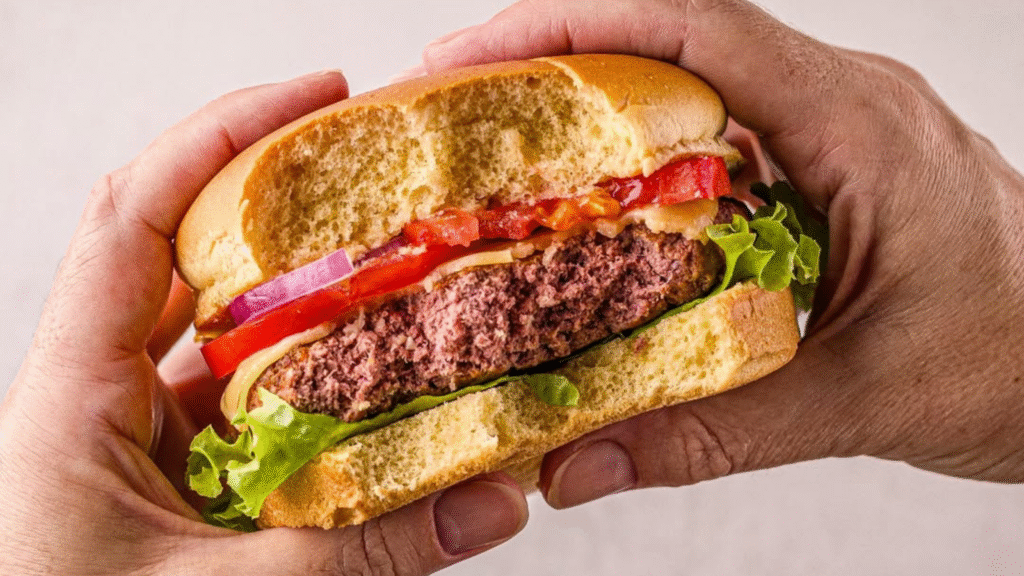 Image by Typcal
Image by Typcal
South American governments and regional organizations have implemented programs to nurture AgriFoodTech ecosystems, though investment remains below the region’s potential given its agricultural significance. Key initiatives include:
- Brazil has established innovation hubs and research institutions focused on tropical agriculture and sustainable farming practices, with programs that support everything from the adoption of precision agriculture to the development of alternative proteins.
- Argentina maintains a strong agricultural research infrastructure and has created favorable conditions for biotechnology companies, particularly in crop science and agricultural inputs.
- Chile’s government has supported precision agriculture initiatives and water management technologies, recognizing the critical importance of resource efficiency in Chilean agriculture.
- Regional venture capital firms like The Yield Lab Latam, with operations across Argentina, Brazil, and Chile, are providing crucial early-stage funding and mentorship to promising startups across the continent.
Meet the South American FoodTech 500 Finalists
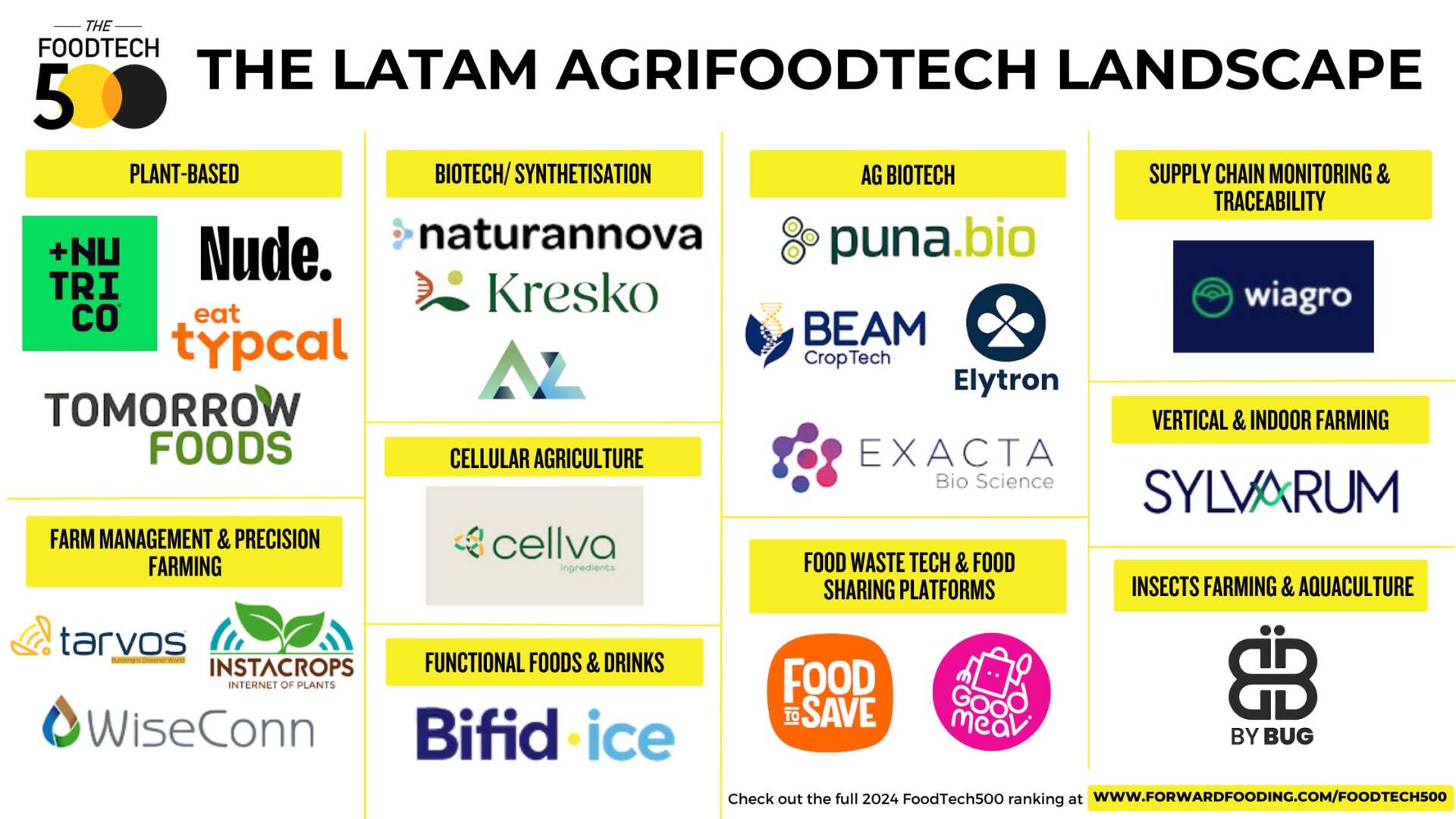
These South American companies have secured spots in the 2024 FoodTech 500, showcasing outstanding innovation, growth, and impact within the AgriFoodTech sector:
Nutri Co (#39 in the 2024 FoodTech 500) | Plant-based | Uses AI to create nutritious and sustainable food products
Nude (#89 in the 2024 FoodTech 500) | Plant-based | Develops plant-based food products using oats sourced from small producers
Puna Bio (#113 in the 2024 FoodTech 500) | Ag Biotech | Increases agricultural resilience through extremophile-based biologics
Cellva Ingredients (#135 in the 2024 FoodTech 500) | Cellular Agriculture | Uses proprietary microencapsulation technology to enhance ingredient stability, bioavailability, and functionality
Food To Save (#156 in the 2024 FoodTech 500) | Food Waste Tech & Food Sharing Platforms | Provides a platform to establishments to sell their surplus products at discounted prices
Tarvos (#161 in the 2024 FoodTech 500) | Farm Management & Precision Farming | Provides smart pest monitoring solutions using digital traps and real-time data to optimize crop protection
Typcal (#268 in the 2024 FoodTech 500) | Plant-based | Develops plant-based food products made with pea protein
Tomorrow Foods (#276 in the 2024 FoodTech 500) | Plant-based | Offers regenerative plant-based protein solutions for the food industry
Instacrops (#298 in the 2024 FoodTech 500) | Farm Management & Precision Farming | Leverages AI-driven technology and IoT sensors to deliver real-time insights and predictive analytics to help farmers maximize yields, optimize resources, and drive sustainable food production
Wiseconn (#301 in the 2024 FoodTech 500) | Farm Management & Precision Farming | Offers an agriculture water management platform with outstanding monitoring and control capabilities
Elytron Biotech (#318 in the 2024 FoodTech 500) | Ag Biotech | Digitizes large-scale microorganism mapping to accelerate the market launch of bio-based products
Naturannova (#346 in the 2024 FoodTech 500) | Biotech/ Synthetisation | Creates plant-based protein flavors and ingredients using computational biology and biomanufacturing processes
BYBUG (#360 in the 2024 FoodTech 500) | Insects Farming & Aquaculture | Designs genetically improved Black Soldier Fly strains to help insect breeders transform organic waste into recombinant proteins for the animal health and nutrition industry
GoodMeal (#417 in the 2024 FoodTech 500) | Food Waste Tech & Food Sharing Platforms | Helps foodservice companies sell their surplus directly to end consumers
Sylvarum (#423 in the 2024 FoodTech 500) | Vertical & Indoor Farming | Specializes in plant electrostimulation technology to enhance crop metabolism, resulting in increased yields and reduced production costs
BEAM CropTech (#457 in the 2024 FoodTech 500) | Ag Biotech | Enhances crop yields and resilience through advanced photobiology
Kresko RNAtech (#461 in the 2024 FoodTech 500) | Biotech/ Synthetisation | Uses RNA technology to extract and stabilize dietary RNAs from fresh superfoods and botanicals
Wiagro (#473 in the 2024 FoodTech 500) | Supply Chain Monitoring & Traceability | Offers technology that enables satellite-based connectivity of grains and seeds stored in any storage medium through satellite IoT
Bifidice (#481 in the 2024 FoodTech 500) | Functional Foods & Drinks | Develops a stabilized functional probiotic ingredient, ideal for incorporation into frozen food matrices
Exacta Bioscience (#488 in the 2024 FoodTech 500) | Ag Biotech | Offers Agtech solutions, like crop protection and soil improvement products
APEXzymes (#491 in the 2024 FoodTech 500) | Biotech/ Synthetisation | Develops high-performance microbial technologies for the industrial production of biofertilizers and enzymes applied to the biofuels and food sectors
Apply now for the 2025 edition of the FoodTech 500
Challenges and Opportunities
While South American companies show remarkable innovation, the region faces challenges in scaling:
Funding Gap: Despite its agricultural significance, Latin America receives proportionally less AgriFoodTech investment compared to North America, Europe, and even the Asia-Pacific. This limits the ability of promising startups to scale and commercialize their technologies.
Infrastructure Limitations: Many rural areas lack reliable internet connectivity and digital infrastructure, creating barriers to the adoption of precision farming and digital agriculture solutions.
Market Fragmentation: The diversity of agricultural systems, regulatory frameworks, and market conditions across South American countries can make regional expansion challenging for startups.
However, these challenges coexist with significant opportunities:
Biodiversity Advantage: Access to unique biological resources provides South American companies with a competitive moat in agricultural biologicals and novel ingredients.
Growing Domestic Markets: Rising middle-class populations and increasing sustainability awareness create expanding markets for plant-based foods and sustainable agriculture solutions.
Export Potential: Technologies developed for South American conditions, including climate resilience, water efficiency, and tropical agriculture, have global applicability as climate change intensifies worldwide.
Strategic Partnerships: Growing interest from international corporations and investors in Latin American innovation is creating opportunities for partnerships, funding, and market access.
Looking Ahead
South American AgriFoodTech companies are strategically positioned at the intersection of global food security challenges and biodiversity-rich solutions. The 21 companies recognized in the 2024 FoodTech 500 represent both the current state of innovation and a glimpse into the region’s potential to become a global powerhouse in Ag Biotech, sustainable proteins, and climate-smart agriculture.
As the world seeks solutions for feeding a growing population while reducing agriculture’s environmental impact, South America’s unique combination of agricultural scale, biological diversity, and emerging technical expertise positions the region as an increasingly important contributor to global food system transformation.
The coming years will be critical. With increased investment, stronger infrastructure, and continued innovation, South America has the potential to dramatically expand its influence in the global AgriFoodTech ecosystem, transforming challenges into opportunities and biodiversity into breakthrough solutions.
Ready to make your mark on the future of food? The Forward Fooding FoodTech 500 2025 is calling for applications from groundbreaking companies. Don’t miss your chance to be recognized. APPLY NOW!
Forward Fooding is the world’s first collaborative platform for the Food & Beverage industry via FoodTech Data Intelligence and Corporate-Startup Collaboration – Learn more about our Consultancy and Scouting Services and our Startup Network.
Follow us
Sponsored Articles
9 July 2025
Forward Fooding celebrates the selection of 12 pioneering startups for the inaugural pladis Accelerator Programme. From water lily popcorn to sugar-converting enzymes, these innovations represent the future of snacking, addressing obesity, sustainability, and personalized nutrition through cutting-edge food technology.
21 March 2025
Tim Ingmire, VP of Global Innovation & Technology at pladis, discusses how the snacking giant is supporting early-stage startups in foodtech, health, and sustainability through their accelerator program. Learn about their focus on personalized nutrition, functional foods, and future ingredients to bring innovative, delicious products to consumers worldwide.
8 February 2024
Future Food-Tech returns to San Francisco on March 21-22 Over 1,700 food-tech leaders, from CPG brands, retailers, ingredient providers, [...]
1 February 2023
The 4th edition of FoodTech 500 is taking off and we are excited to partner with NEOM for the third consecutive year to support the best international AgriFoodTech entrepreneurs.
10 February 2022
One of the elements we enjoy the most here at Forward Fooding about working with AgriFoodTech startups is being [...]

